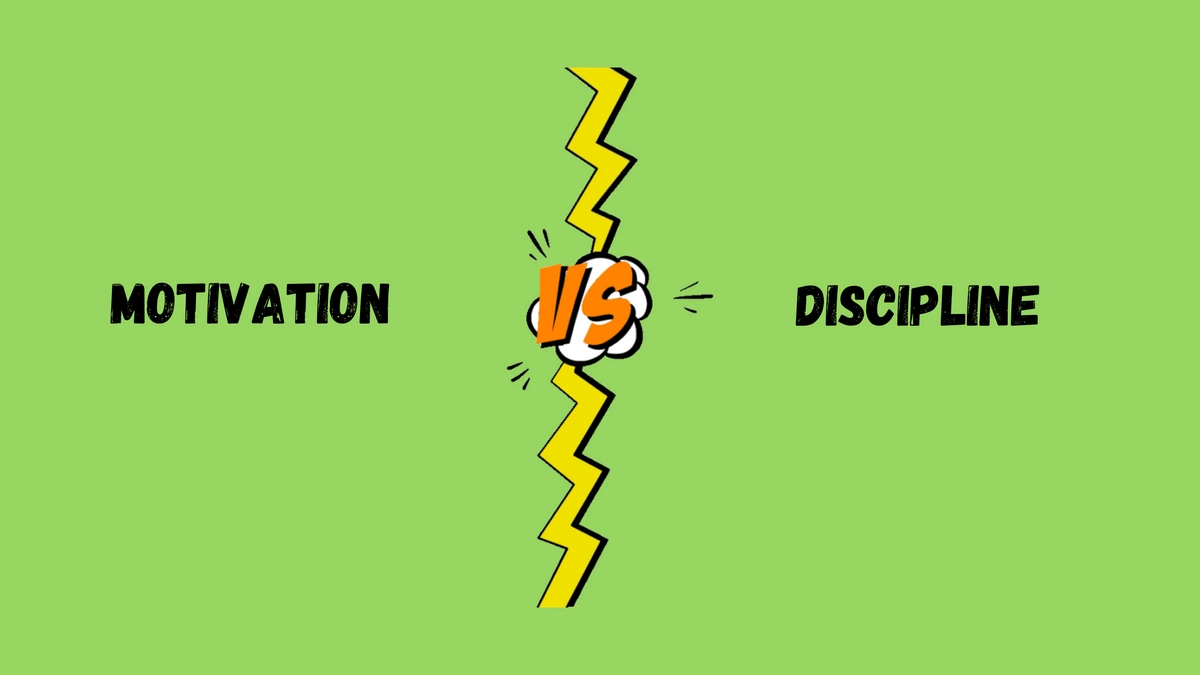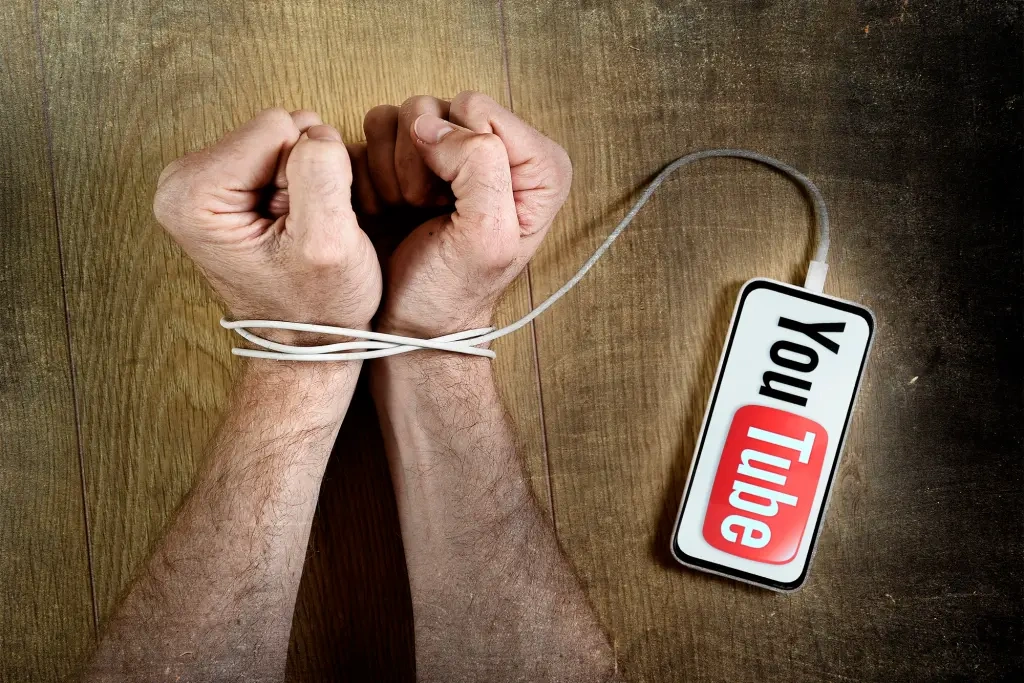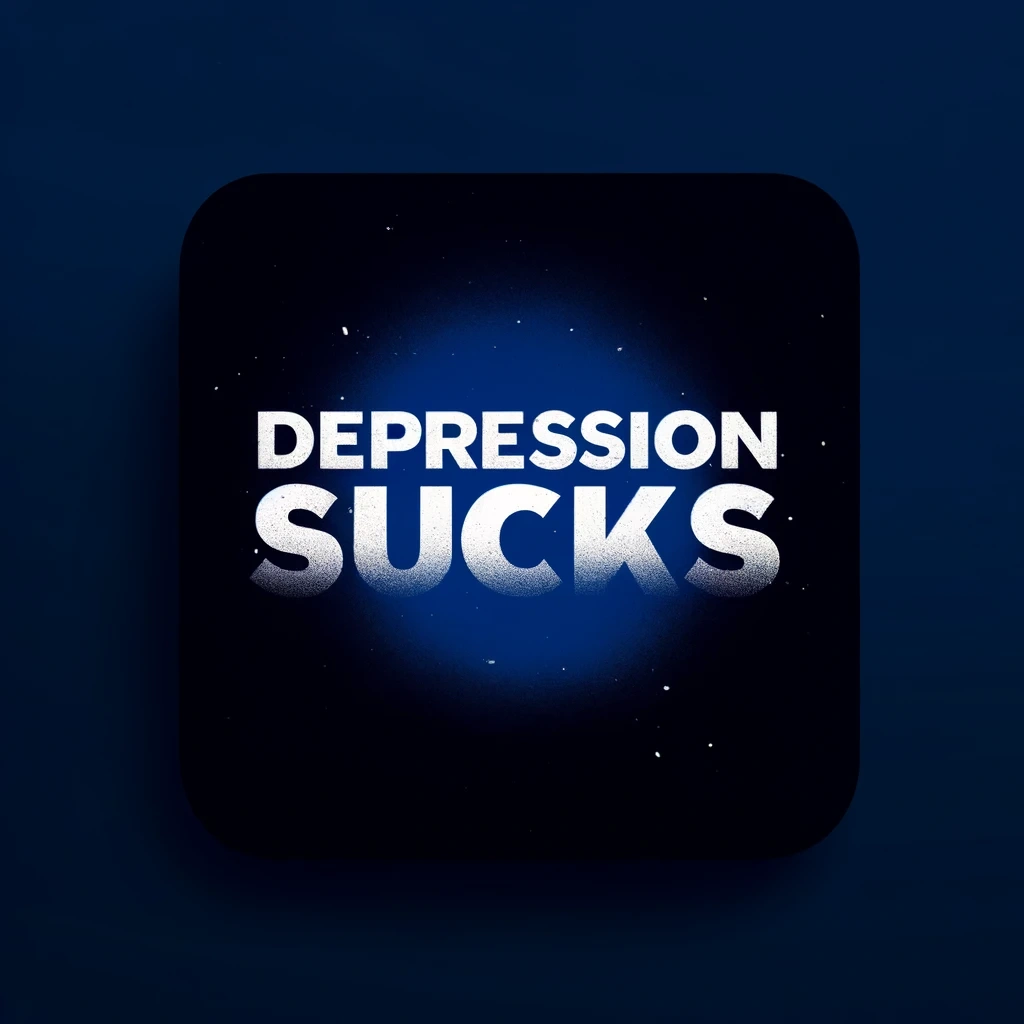We've all had those Mondays where we're super excited to start something new, right? But then, by Wednesday, we're already tired and giving up. It's like we can't keep going.
See, there's feeling excited – that's motivation. It's what makes us want to start. Then, there's sticking to it – that's discipline. It's what keeps us going even when we don't feel like it.
Did you know that 80% of New Year’s resolutions fail by February? This shows how hard it is to stay consistent.
So, the question is: Which is more important? Motivation or discipline? Or Can you have both?
We'll look at motivation vs. discipline and see how they can help you reach your goals and stop being inconsistent.
Motivation Vs Discipline: Which One Actually Gets Results?
Before we differentiate motivation and discipline, you need to understand what both of them are, as they are basically the foundation of how we achieve our goals.
Motivation: ‘gets you going’
Motivation is that feeling inside you that makes you want to do something. It's why you want to reach a goal, learn something new, or just finish a task. You might wonder, where does this feeling come from? It can come from different places:
Intrinsic Motivation:
This is when you do something because you genuinely enjoy it or find it personally satisfying. For instance, you might play a musical instrument because you love the sound, or read a book because you're curious about the story.
But, here's the thing: your intrinsic motivation can disappear fast. I’ll tell you how! So, you're all pumped up to start something, and then you get a notification from social media. You look, and suddenly, you're scrolling and your motivation is gone.
Here’s a solution for such a problem: Download BeTimeful on your iOS or Android devices and keep your motivation going.
BeTimeful hides your social media from your phone unless you need to go on a timed break to scroll before your time is up!
Extrinsic Motivation:
On the other hand, extrinsic motivation is when you do something because of external rewards or pressures.
You might work hard at your job to get a promotion or study for a test to get a good grade. While this type of motivation can be effective, it's important to remember that it can fluctuate with your mood.
What’s good & not-so-good about Motivation?
Motivation is great for starting. It makes things fun! Still, it's important to accept that it can disappear quickly. One day you're ready, the next you're not.
Social media can play a significant role in this fluctuation. I’m saying this because I’ve seen many people question Is deleting social media a sign of depression? as they observe changes in their mood and motivation.
Discipline Over Motivation: ‘keeps you going’
Discipline is basically doing what you said you'd do, even if you don't feel like it. Imagine you promised to play guitar, but you're tired; discipline helps you keep that promise.
It's about building good habits, so you can reach your goals, no matter what.
Discipline is all about:
Doing things regularly: It’s doing the work, no matter how you feel. Whether it's playing your instrument daily or reading your book, do it! Remember, consistency is key.
Controlling yourself: Discipline is saying no to things that distract you from what you need to do. For example, if you keep reaching for your phone, discipline helps you put it away. Thinking about things like, Should I Delete Social Media? can help you control yourself.
Making long-term habits: Ultimately, discipline is about creating routines that support your goals. It helps you reach long-term goals, even if you don't feel like it.
What’s good & not-so-good about Discipline?
It helps you get things done, even when you don't want to. But, discipline can also make you too strict and less able to enjoy things that aren't planned.
Motivation vs Discipline: Get The Best Of Both Worlds
Okay, now let's ditch the tug-of-war of Discipline vs Motivation. You don't have to pick sides. They work best together. Let's talk about how to get them working together for you:
1. Start with Something You Love (Motivation)
When you're starting something new, it's way easier if you actually like doing it. Find the part of your goal that makes you happy or excited.
Maybe you love how you feel after a workout. That feeling of satisfactionis like a little engine that gets you going.
When you focus on what you love, it gives you that "I want to do this!" feeling of Motivation. It's like finding the fun in your work, which makes it much easier to begin.
2. Make a Simple Plan (Discipline)
Don't try to do everything at once! That's too much. Instead, break your big goal into smaller, easier steps. Write these steps down. This creates a roadmap. Even if you don't feel like it, your plan tells you what to do.
For maintaining your gym discipline, instead of saying "I'll workout every day," plan specific days and times. For example, "Monday, Wednesday, Friday: 7:00 AM, 30-minute cardio."
To make your plan even better and stop yourself from getting distracted, here's a perfect solution. If you find yourself watching many YouTube videos when you only meant to look for one gym tutorial, download Unhook available on the AppStore or PlayStore.
Unhook blocks your YouTube homepage, Ads, and recommended videos so you can still search without getting distracted unless you need a timed break to scroll before your time is up.
3. See Your Progress (Motivation)
Keep track of what you've done. This could be a list, a calendar, or even just a picture you draw. Seeing your accomplishments can be incredibly motivating. It shows you're doing well, and your hard work is paying off.
So, when you’re working out, keep a record of your workouts, noting the weights you lift or the distance you run. Watching your progress over time will surely keep you motivated.
4. Give Yourself Small Wins (Motivation)
Celebrate every little step you take. When you finish a small task, give yourself a little reward. This could be anything that makes you happy, like a short break, a favorite snack, or a moment to relax.
Small wins make you feel good, and that keeps you excited about your goal. It's like getting a high-five from yourself, saying "Good job!"
So, you completed a week of consistent workouts? Reward yourself. A new workout outfit, a healthy smoothie, or a relaxing evening can be great motivators.
5. Don't Give Up (Both)
There will be days when you don't feel like working. That's okay. Everyone has those days. On those days, use your plan to keep going.
Your plan will tell you what to do, even when you don't feel like it. Remember why you started this goal. Think about how good it will feel when you finish.
And remember all the small wins you've already had. Using your plan (discipline) and remembering your "why" (motivation) will help you keep going, even when it's hard.
Even on days when you're tired, stick to your workout plan. Remember the positive feelings you get after completing a workout.
And remember, even when you hit those moments where you're thinking 'Depression Sucks' and it feels like the goal is too far off, that's when leaning on your plan and remembering your 'why' is most important, and those feelings can shift.
Final Words
Let's cut to the chase. You've seen how motivation and discipline work, right? It's not about which one's the "winner." It's about how they team up.
So, instead of seeing them as separate, start seeing them as partners. Motivation gets you off the couch, and discipline keeps you moving when the couch looks really, really comfy. It's about creating a rhythm, a flow.
Here's the real deal: stop waiting for the perfect moment of motivation. Stop thinking discipline is some kind of punishment.
This week, pick something. Anything. And instead of just hoping you'll do it, decide you will. Use that initial burst of excitement, then lean into the "just do it" power of discipline. You'll not only get it done, but you'll also build that brain muscle for the next challenge.
Ready to stop just dreaming and start doing? Your time starts now.
FAQs
-
What is the difference between motivation and discipline?
Motivation is the feeling that pushes you to start something. It's the "want to." Discipline is the ability to keep going, even when you don't feel like it. It's the "do."
-
Which comes first, motivation or discipline?
Motivation comes first. It's what makes you start. Even if sometimes it doesn't last, it gets you going. So, wanting to do something usually comes before doing it anyway.
3. Can you be disciplined without motivation?
Yes. Discipline is about actions, not feelings. You can stick to a routine even when your motivation is low.
4. Does discipline beat motivation?
In the long run, yes. Motivation is temporary, but discipline provides the consistency needed for lasting progress.












